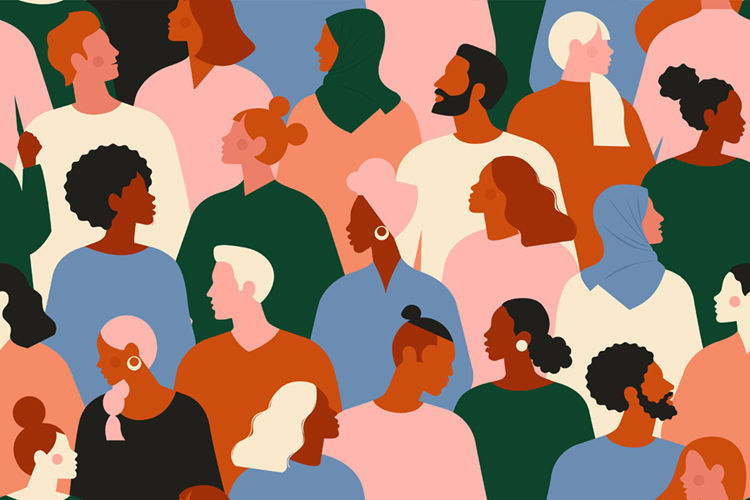The murder of George Floyd at the hands of police fills me with anger and sadness, and I hope that justice will prevail. Black lives matter, and I do not want to see another person fall victim to systemic racism and police brutality. I agree with those who say that silence perpetuates white supremacy, and if someone has something to say, they need to say it. As a privileged white male, I have been struggling with what I can add to the critical dialog on race during these turbulent times.
While scrolling through my FACEBOOK feed these past days, I continue to see well-meaning but problematic posts like those below, and it dawned on me that I might have something to say to my fellow white Americans.

While a beautiful sentiment, and a biological fact, for a white person to say that “there is only one race” discounts—in most settings—the lived experience of black and brown folk and shuts down any authentic conversation on race. As one of my favorite writers on the subject, Dr. Robin DiAngelo explains in her lecture Deconstructing White Privilege,
To say that we are all the same denies we have fundamentally different experiences. While race at the biological level is not real, race as a social construct based on superficial features is very real with significant consequences in people’s lives. The insistence that “we are all one” does not allow us to engage in that social reality.
In the same lecture, Dr. DiAngelo gives the name universalism to the dogma of “oneness” in racial discourse and identifies it as one of the pillars of white supremacy. Universalism is a powerful concept in that it props up racist beliefs by allowing whites to reject the existence of racism. Once recognized, it is easy to recognize examples of universalism. For instance, by now, everyone has heard white supremacists chant, “All lives matter.” The chant’s popularity arises in how it works to silence black voices.
Universalism also features in the form of racism whose members consider themselves “color-blind” and holds that if one pretends not to notice race, there can be no racism. A common refrain from color-blind racists is that it is racist even to bring up race. Such racists also like to say, “Race has nothing to do with it” and “Focusing on race is what divides us” because they fail to see the racial dimension of social experience and wish to be protected from uncomfortable racial discussions. Not “seeing race” protects racist systems while protecting the feelings of white folks. It also serves to pressure black people to avoid discussing race matters while shielding white folks from facing their racist beliefs.
The greatest danger of universalism is that it perpetuates the idea that racism is a moral problem and not a system of unequal social, cultural, and institutional power. America suffers from extreme racial inequality and segregation. As long as racism is seen as a moral failing, the institutions designed to maintain white supremacy remains in place with far-reaching consequences. If white supremacy is ever to be overcome, it must be understood and intentionally dismantled.
I include links below to Dr. DiAngelo’s excellent book, White Fragility, and to her web site, which contains excellent resources for further reading. I also highly recommend Michelle Alexander’s book, The New Jim Crow, which details one way that institutional racism –in the form of America’s criminal justice system—perpetuates white supremacy.
I encourage you to contribute your own suggested anti-racist resources in the comments section below.
Dr. Robin DiAngelo’s Critical & Social Justice Education Resources



Saw at a local march on Monday — “I understand that I can never truly understand and I stand with you!” held by 2 white girls.
I like that sentiment since it shows humility. White folks will never get over their racist conditioning until they acknowledge it.